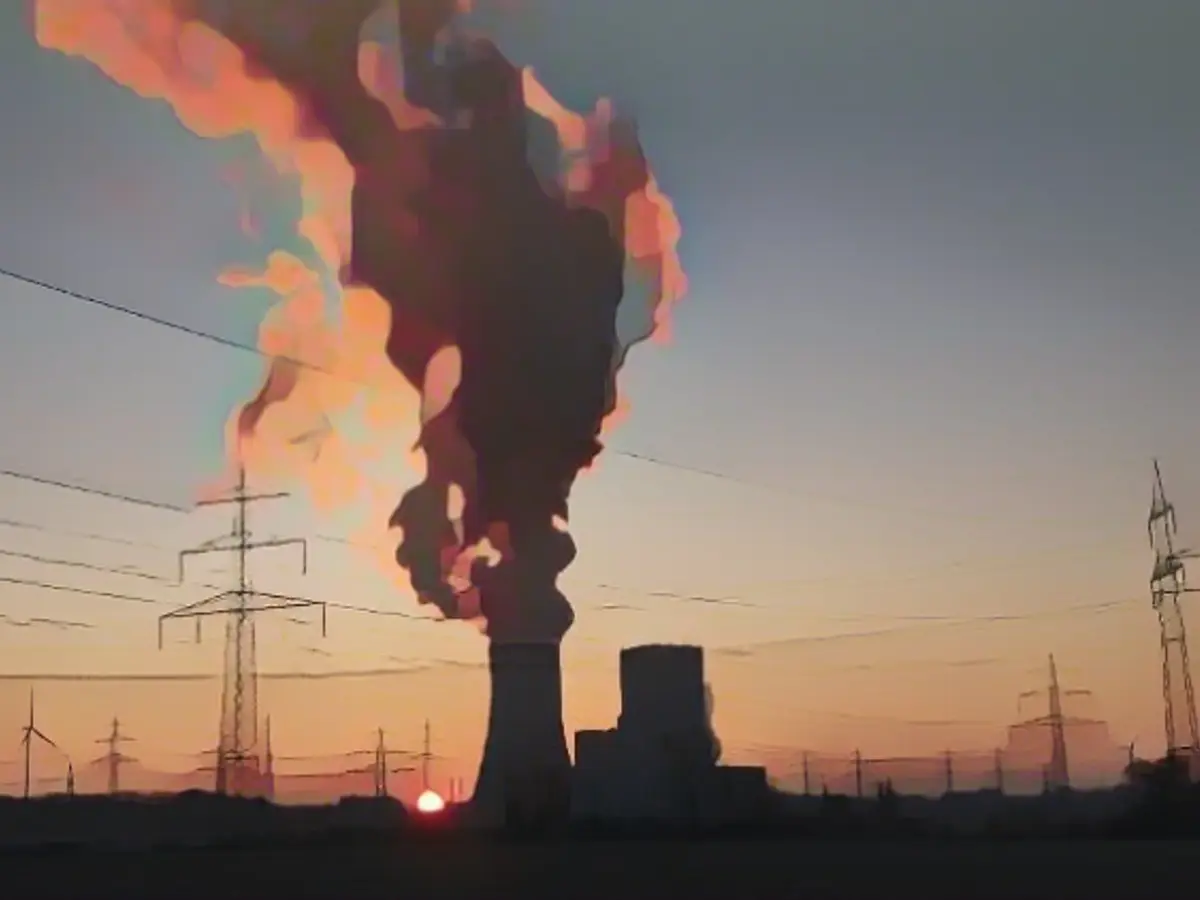Industry does not believe in earlier coal phase-out
According to the coalition agreement, 80% of Germany's electricity is to come from renewable sources by 2030. The Federation of German Industries considers this plan to be unrealistic. Sufficient reserve capacity is needed for the phase-out - and this does not exist.
The industry sees little chance of an early coal phase-out in Germany. Industry President Siegfried Russwurm cited the lack of a strategy from Federal Minister for Economic Affairs and Climate Protection Robert Habeck regarding incentives for the construction of new gas-fired power plants as the reason for this. "It is highly annoying that we could find ourselves in a situation where we have to continue operating coal-fired power plants for longer because there is not enough other reserve capacity."
The German government is focusing on renewable energy from wind and solar power to restructure the electricity system. The aim is for 80 percent of the electricity consumed in Germany to come from renewable sources by 2030. Currently, it is just over half.
No power plant strategy
Companies have been waiting a long time for Habeck to present a power plant strategy, which was actually due to be presented in the summer. New gas-fired power plants are to step in as a "backup" in "dark doldrums" - when there is no wind and no sunshine - to cover the demand for electricity. They are initially to be operated with natural gas and later with climate-neutral hydrogen. However, energy companies have so far shied away from investing because the new power plants have not yet paid off.
Habeck had announced state subsidies in the billions. An incentive system is possible that rewards operators for maintaining power plant capacities. However, following a ruling by the Federal Constitutional Court, the German government will have to plug holes worth billions in the budget for 2024 and in the Climate and Transformation Fund.
"Private-sector investment will be needed, and this must be worthwhile - even if there are only a few operating hours per year," said Russwurm. "I'm a fan of expanding renewables. But honesty requires us to say that we need reserves for the dark doldrums. We are a long way from having sufficient storage capacity." Sufficient hydrogen-capable gas-fired power plants are a dream of the future.
Government under fire
"When announcing its power plant strategy, the German government assumed that we would be able to import considerable quantities from abroad at times when electricity is scarce here and that we would therefore only need to add 25 gigawatts," said the President of the Federation of German Industries. "This is a highly optimistic thesis because it assumes that our neighbors will always have surplus electricity when we need it. But even 25 gigawatts of additional capacity means 50 new power plants." This is an immense ambition.
"To the extent that this expansion does not succeed, the Federal Network Agency will have little choice but to keep coal-fired power plants on the grid in order to maintain security of supply," said Russwurm. "And electric cars that run on electricity from coal-fired power plants would really be a serious setback for climate protection."
Russwurm believes an earlier coal phase-out is almost no longer possible
The traffic light coalition had agreed to "ideally" bring forward the coal phase-out to 2030 in order to prevent the emission of climate-damaging carbon dioxide. So far, however, an eight-year earlier phase-out has only been agreed in the Rhineland coalfield. It is controversial in the coalfields in eastern Germany.
When asked whether he still sees a chance of a coal phase-out in 2030, the BDI President said: "To be honest, I don't have the imagination for it." Building 50 gas-fired power plants at the same time in just a few years is hardly conceivable. There are only a few manufacturers who are capable of producing hydrogen-capable gas turbines, and this is neither easy nor inexpensive. "If 50 are to be ordered, planned, approved and built at the same time in Germany alone, that is an objective that seems unrealistic to me."
Read also:
- Why there is still no EU funding for green Saar steel
- 3 billion Saar Fund is unconstitutional
- Lack of snow also opens up new opportunities for winter tourism
- Abrupt end to e-car subsidies
- Despite the Traffic Light coalition's aim to accelerate Germany's coal phase-out, Federal Minister for Economic Affairs and Climate Protection Robert Habeck's lack of a clear strategy for incentives for new gas-fired power plants has led the Federation of German Industries to believe that an early coal phase-out is unlikely due to insufficient reserve capacity.
- The Coal industry, including the Federation of German Industries, is emphasizing the need for new gas-fired power plants with hydrogen capabilities as backup for periods of low renewable energy production, arguing that private-sector investment in these plants is necessary but not yet financially viable given the current situation.
- According to Industry President Siegfried Russwurm, the Coal-fired power plants could continue operation beyond the planned coal phase-out due to the German government's inability to meet its ambitions for renewable energy production and the concurrent need for security of supply, which could potentially exacerbate coal emissions and hinder climate protection efforts.
Source: www.ntv.de








